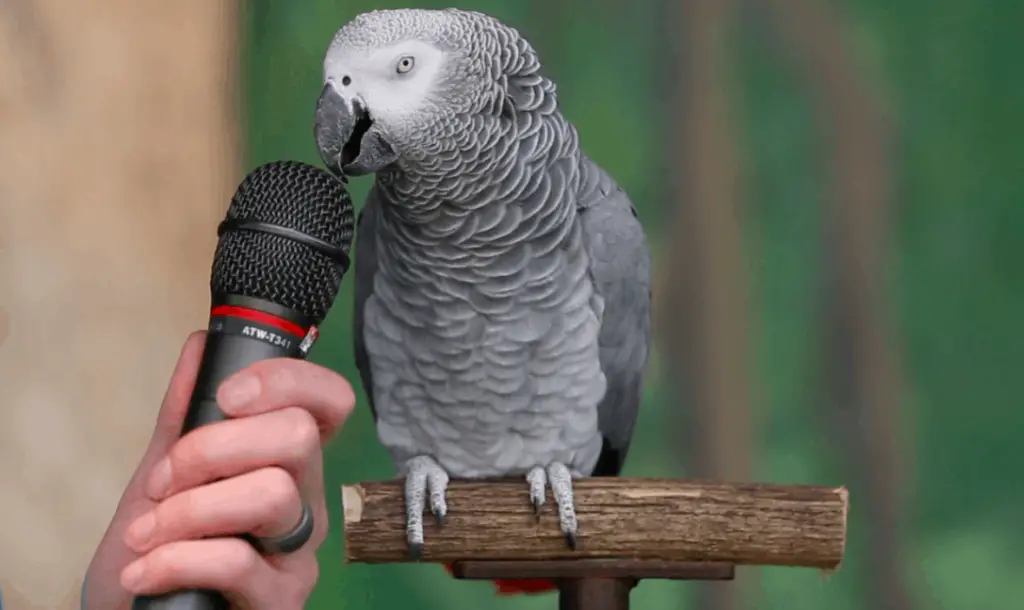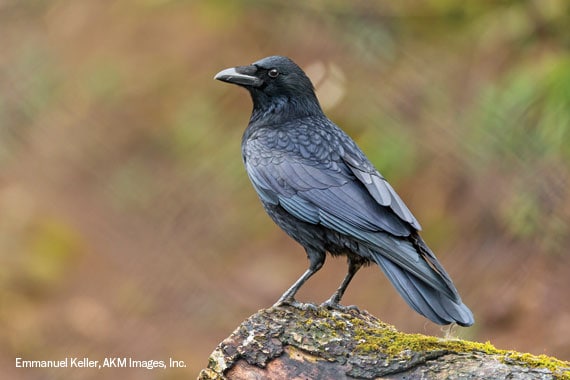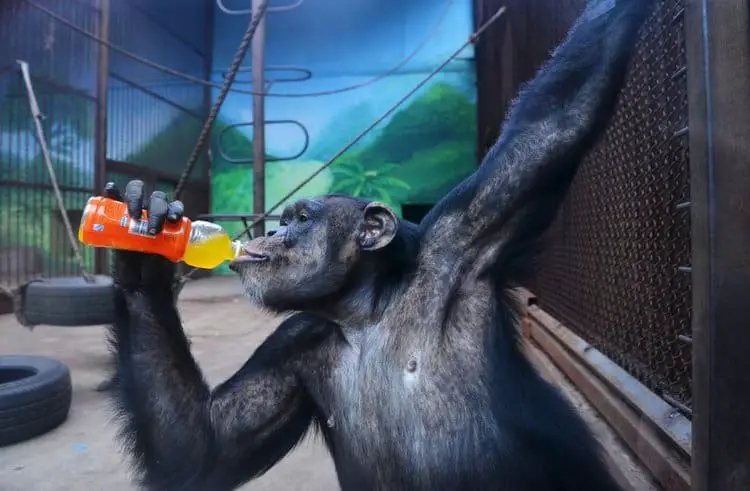We, humans, can learn, reason, and solve problems, human beings.
We are conscious of ourselves, and we are also aware of others’ presence, thoughts, and sentiments.
Scientists may not agree that humans have complete intelligence in the animal kingdom, but commonly agree that humans are very intelligent.
Research has shown that some animals are far smarter than people realize, according to National Geographic.
In this respect, we have created a list according to animal intelligence.
Both small and large animals made up the list and proved that larger species are not always better in terms of brains.
Following is the list of smartest animals in the world rankings:
10. Bees

Honeybees exhibit remarkable intelligence through their collective behavior known as “swarm intelligence.”
With approximately 50,000 workers collaborating within a single colony, they make democratic decisions. During the spring, when hives become crowded, bee colonies dispatch ‘scouts’ to search for new locations to establish their hives.
In the event of disagreements among scouts regarding the colony’s next hive, they engage in peaceful arguments, often referred to as a “dance-off.”
Each scout performs a unique dance, known as the “waggle dance,” in an attempt to convince others of the superiority of their proposed location.
The level of enthusiasm displayed in the dance reflects the scout’s satisfaction with the newfound spot.
The rest of the colony votes by joining the dance moves, resulting in the selection of the preferred location.
It is a captivating display of decision-making and communication among these remarkable creatures. Perhaps, if only Congress settled their disputes through such harmonious means, it would be truly awe-inspiring.
According to neuropsychiatrist Jon Lieff, honeybees possess an extraordinary memory of every flower within miles and acquire knowledge from wise elders about the locations of the finest blossoms.
9. Squirrels

Squirrels have gained recognition for their intelligence and their ability to learn from their peers.
A recent study highlighted in Science Daily revealed that squirrels demonstrate advanced caching strategies to thwart theft.
When squirrels observe humans stealing their peanuts, they adapt their behavior accordingly.
This indicates their capacity to perceive the actions of others and adjust their own actions in response.
In the study, squirrels that were aware of being watched by humans dug fake caches for their nuts, cleverly burying them in the sand, under their armpits, or in their mouths until they could find a more secure hiding place.
Additionally, researchers have discovered that squirrels in California cover their fur with snake-scented substances to mask their own smell from predators, showcasing their adaptive and cunning nature.
8. Octopus

Octopuses, among invertebrates, stand out as unexpectedly intelligent creatures.
Their ability to detect and locate enemies demonstrates their intellectual prowess.
Despite their seemingly squishy appearance, researchers have found that octopuses possess remarkable intelligence and employ various means of communication, including color and pattern changes.
These multi-armed creatures possess the largest brain relative to their body size compared to other invertebrates.
An average octopus has approximately 130 million brain neurons, a significant number considering their unique physiology.
While their intelligence is not solely confined to their brains, octopuses exhibit ingenuity and problem-solving abilities that fascinate researchers.
7. Parrots

Parrots are considered as intelligent as human children. That’s why the parrot is the only one of the two birds listed among the smartest animals.
These birds solve puzzles and also know the cause-and-effect notions.
Among them are the African greys, a parrot subspecies renowned for incredible memory, cognitive abilities, and counting ability.
African grey parrots can learn and use a considerable number of human words to communicate with humans.
We all know how ingenious parrots are, but are they all capable of doing just that? No!
Over the years, there have been several studies on different parrot types to determine what they can and how intelligent they are.
Alex (an African Grey Parrot) was the subject of a 30-year study that concluded that he was as bright as a 5-year-old human!
Alex could identify over fifty objects, and five shapes, differentiate colors, and recognize up to six numbers.
Not just that, but Alex had more than a hundred words in his vocabulary, too!
Perhaps most interestingly was Alex’s ability to ask a question.
He asked, “What color?” when looking at himself in the mirror?
After being told six times, he learned the word “Grey.”
The question signified a remarkably important aspect that Alex was the first-ever non-human animal to ask a question.
While animals like dolphins and primates can answer questions, no one has ever asked a question.
We can say that Parrots could be fully aware of their surroundings and their existence.
6. Crow family

Crows and ravens have been regarded as highly intelligent birds since ancient times.
These birds, part of the corvid family, have been the subject of extensive research due to their remarkable problem-solving skills and tool use.
They exhibit complex social systems and possess excellent long-term memory, enabling them to remember the faces of individuals.
Additionally, crows demonstrate social communication through gestures.
The harm done to one crow may quickly spread among the flock, prompting collective retaliatory actions.
Research has shown that crows possess the ability to solve puzzles and navigate through complex sequences of events, highlighting their cognitive abilities.
The New Caledonian crows, in particular, are renowned for their tool-making skills, including the use of meta- and compound tools, as well as their adeptness at mirror use.
5. Pigs

Pigs have garnered recognition as one of the most intelligent animals, surpassing the cognitive abilities of cats and dogs.
Contrary to popular belief, pigs’ affinity for mud is not a result of a desire to be dirty but rather a consequence of their lack of sweat glands, which prevents them from regulating body temperature like humans.
Researchers studying pigs have discovered their excellent long-term memory, problem-solving skills, and ability to comprehend simple symbolic language.
Pigs also exhibit a propensity for play and play-fighting, further indicating their intelligence.
In an intriguing experiment, pigs were taught to operate a joystick to maneuver an on-screen cursor, showcasing their ability to adapt to technological interfaces.
4. Dogs

Dogs, often referred to as humanity’s best friends, hold a special place in our hearts due to their remarkable intelligence.
They possess empathy, show compassion, and possess a keen awareness of human gestures.
Stanley Coren, a canine intelligence specialist, estimates that the average dog understands around 165 human words.
In one exceptional case, a Border Collie named Chaser demonstrated an understanding of over 1,022 words.
Dogs exhibit a remarkable ability to learn commands, comprehend sign language, and interpret their owners’ intentions.
They also possess the capability to deduce nonverbal cues, an ability closely related to humans’ capacity to understand others’ perspectives.
However, it is worth noting that even their canine cousins, such as wolves, coyotes, jackals, and foxes, exhibit superior intelligence compared to an average domesticated dog.
Expressions like “crafty wolf” and “cunning as a fox” have their basis in reality.
3. Elephants

Elephants are renowned for their intelligence and possess extraordinary memories, often surpassing our own.
They can recall specific routes over vast distances and remember watering holes for many years.
Unlike humans, elephants never forget a friend, be it another elephant or a human.
The bond between elephants is strong and enduring.
A fascinating example is the story of Shirley, a female elephant who arrived at The Elephant Sanctuary in Tennessee in 1999. Upon encountering Jenny, another elephant, the two immediately exhibited excitement and playfulness.
This behavior was peculiar as elephants typically require time to develop friendships.
Subsequent research revealed that they had performed together in a circus 22 years prior.
In the wild, elephants exhibit helpfulness, compassion, and empathy.
They communicate with each other using seismic vibrations produced by their trunks and feet, a unique method of long-distance communication.
Elephants display their intellectual capabilities through tool use, such as employing sticks to ward off ticks or using palm fronds to swat flies.
Their substantial brain size equips them with extensive knowledge about their surroundings.
Observations and studies conducted at Emory University have revealed that elephants exhibit strong emotional responses, providing reassurance to distressed individuals and displaying self-recognition in mirrors—a cognitive test previously passed only by humans, apes, and dolphins.
2. Dolphins

Dolphins possess a high brain-to-body ratio, second only to humans.
Trainers and researchers have noted their ability to understand emotions and intentionally mimic human actions.
Studies conducted by the Marine Mammal Studies Institute in Mississippi revealed that dolphins are among the craftiest animals on Earth.
For instance, Dolphins were trained in their tanks to pick litter and exchange them with trainers for fish, and a dolphin named Kelly found a way to game the system.
She tore single sheets of waste paper into multiple pieces, concealing the fragments under a rock in her tank and exchanging each piece for fish.
This deliberate deception showcased Kelly’s intelligent problem-solving skills.
Bottlenose dolphins are one of the few animal species that produce unique vocal whistle signatures, akin to individual names.
Dolphins exhibit social bonds and are known to support injured or sick group members by helping them breathe at the water’s surface.
Sometimes, Dolphins also protect human swimmers from sharks by swimming around them or rushing at the sharks to scare them away.
Dolphins near the coast sometimes team up with fishers to catch fish.
Dolphins scare off fish from deep waters towards the shore where fishers are ready to drop their nets.
Surprisingly, when the moment arrives to drop the nets, the Dolphins signal the catchers.
Dolphins get fishes from the hunt as a reward for their help.
Now that’s an example of what we can call brilliant teamwork.
In Australia, some dolphins use a sponge to protect their nose from hunting on the ocean floor, a behavior that parents pass to offspring.
There are countless examples to prove dolphins smartness, which we couldn’t include in our list.
1. Chimpanzee

Chimpanzees are widely regarded as the smartest animals in the world.
Their intelligence is demonstrated through tool use, complex vocal communication, and exceptional problem-solving abilities.
Genetically, chimpanzees share approximately 98% of their DNA with humans, making them our closest primate relatives.
They live in social communities and possess the adaptability to thrive in various environments.
Chimpanzees are known to fashion and use tools, such as rocks for cracking nuts or leaves for drinking water.
They exhibit a talent for playing games like chess or poker, showcasing their ability to employ game theory.
Chimpanzees have outsmarted humans in numerous tests designed to assess cognitive abilities.
Their short-term memory is exceptionally strong, surpassing that of most humans.
Ayumu, a chimpanzee, demonstrated the ability to remember and accurately recall the sequence and placement of numbers on a monitor after observing it for less than a second—an astonishing feat that eludes even highly trained human memory champions.
Chimpanzees also exhibit social behaviors, organize hunting strategies, reinforce social bonds through various interactions (including sexual behavior), and engage in acts of violence.
Their advanced cognitive abilities and evolutionary closeness to humans make chimpanzees the top-ranked species on the list of the world’s smartest animals.
It’s important to note that intelligence is a complex and multifaceted trait, and the ranking of animals’ intelligence can vary depending on the criteria used for assessment.
Additionally, intelligence can manifest differently across species, with each animal having its unique set of cognitive abilities adapted to its ecological niche.

Hyenas have actually been shown to be as intelligent as chimps! They’re so underrated and underestimated.